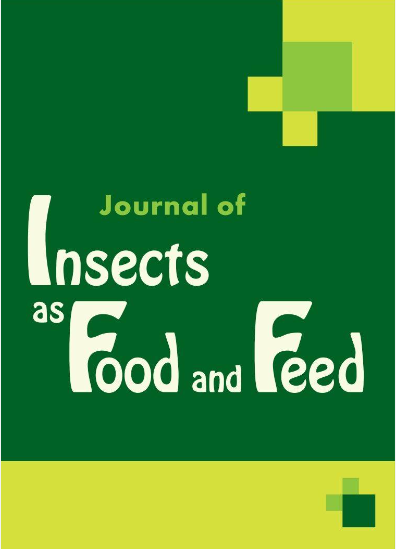African edible insects as human food – a comprehensive review
IF 3.5
3区 农林科学
Q1 ENTOMOLOGY
引用次数: 0
Abstract
In Africa, food insecurity seems to be a continual problem as a result of various factors such as extreme poverty, water scarcity, land degradation, and climate change. As a result, chronic hunger and malnutrition are still prevalent in many African countries. Consequently, the utilization of available and affordable natural food sources is needed to accommodate the energy and nutritional requirements of the people, such as edible insects. Edible insects are abundant and locally available throughout Africa, hence could be utilized as low-cost, nutritious, and sustainable foods. Around 500 species have been recorded in sub-Saharan Africa out of the 2,100 known edible insect species worldwide. The consumption of insects, also known as entomophagy, has been historically practiced by indigenous people of Africa. To date, edible insects are seen in Africa as a good opportunity, particularly for rural households, to improve their livelihoods at an economic and nutritional level. Edible insects are a great source of energy and nutrients – and their rearing only requires a small amount of water, land and feeding resources. Entomophagy may also serve as an ecologically sound control measure for insect pests, such as locusts, that periodically wreak havoc on agricultural fields. The combination of being a highly nutritious food source and having economic advantages made edible insects very attractive in all the African regions. Their promotions into the diet would ameliorate the well-being of the population and boost economic growth in Africa. However, African countries need local and regional legal frameworks to achieve smooth functioning of marketing of edible insects and their products.作为人类食物的非洲食用昆虫--全面回顾
在非洲,由于极端贫困、缺水、土地退化和气候变化等各种因素,粮食不安全似乎是一个持续存在的问题。因此,许多非洲国家仍然普遍存在长期饥饿和营养不良问题。因此,需要利用现有的、负担得起的天然食物来源来满足人们的能量和营养需求,例如食用昆虫。食用昆虫资源丰富,在非洲各地均可就地取材,因此可作为低成本、有营养和可持续的食物加以利用。在全世界已知的 2100 种可食用昆虫中,撒哈拉以南非洲记录了大约 500 种。食用昆虫,又称昆虫食性,在历史上一直是非洲土著人的习俗。迄今为止,食用昆虫在非洲被视为在经济和营养层面改善生计的良机,特别是对农村家庭而言。食用昆虫是能量和营养的重要来源--饲养它们只需要少量的水、土地和饲养资源。昆虫食性还可作为一种生态无害的控制措施,控制定期对农田造成严重破坏的蝗虫等害虫。可食用昆虫既是高营养的食物来源,又具有经济优势,因此在所有非洲地区都极具吸引力。在饮食中推广食用昆虫将改善非洲人民的福祉,促进经济增长。然而,非洲国家需要地方和区域法律框架,以实现食用昆虫及其产品销售的顺利运作。
本文章由计算机程序翻译,如有差异,请以英文原文为准。
求助全文
约1分钟内获得全文
求助全文
来源期刊

Journal of Insects as Food and Feed
Agricultural and Biological Sciences-Insect Science
CiteScore
7.00
自引率
17.60%
发文量
133
期刊介绍:
The Journal of Insects as Food and Feed covers edible insects from harvesting in the wild through to industrial scale production. It publishes contributions to understanding the ecology and biology of edible insects and the factors that determine their abundance, the importance of food insects in people’s livelihoods, the value of ethno-entomological knowledge, and the role of technology transfer to assist people to utilise traditional knowledge to improve the value of insect foods in their lives. The journal aims to cover the whole chain of insect collecting or rearing to marketing edible insect products, including the development of sustainable technology, such as automation processes at affordable costs, detection, identification and mitigating of microbial contaminants, development of protocols for quality control, processing methodologies and how they affect digestibility and nutritional composition of insects, and the potential of insects to transform low value organic wastes into high protein products. At the end of the edible insect food or feed chain, marketing issues, consumer acceptance, regulation and legislation pose new research challenges. Food safety and legislation are intimately related. Consumer attitude is strongly dependent on the perceived safety. Microbial safety, toxicity due to chemical contaminants, and allergies are important issues in safety of insects as food and feed. Innovative contributions that address the multitude of aspects relevant for the utilisation of insects in increasing food and feed quality, safety and security are welcomed.
 求助内容:
求助内容: 应助结果提醒方式:
应助结果提醒方式:


